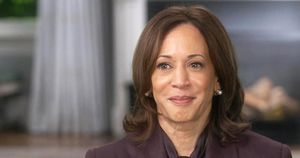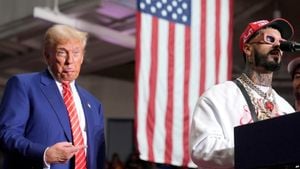With the inauguration of Donald Trump, the selections for his cabinet raise both eyebrows and hope among market analysts and everyday investors alike. Notably, his choice of Scott Bessent as Treasury Secretary—a seasoned hedge fund manager—has many speculating about how these appointments could influence economic policies and the investing climate. Bessent’s reputation as someone who navigates the tumultuous waters of finance might alleviate fears of radical economic shifts, particularly concerning Trump’s previously stated tariff intentions.
Bessent is not your average political appointee; his credentials include past tenures at George Soros's asset management firm and his current role as CEO of Key Square Capital Management. His framing of tariffs as tools for negotiation rather than definitive policies indicates a potentially moderated approach to trade affairs, which has already sent ripples of optimism through global markets. Investors find comfort knowing there is room for tempered discussions rather than rigid tariffs aimed at significant trade partners like China.
When Donald Trump hinted at imposing hefty tariffs—up to 60%—on trade with China, many economists held their breath, fearing retaliatory hikes from key global players. The recent news of former Trump confidant Bessent as Treasury Secretary has seemingly put some of those fears to rest. The U.K.’s FTSE 100 saw positive movement, and the S&P 500 followed suit, hinting at investor confidence returning to the forefront.
UBS’s Chief Economist Paul Donovan noted the markets reacted favorably because investors tend to prefer what he describes as “orthodoxy, predictability, and coherence” over radical or erratic policies—something they feared with less moderate candidates Trump considered initially. With Bessent’s steady hand on the wheel, analysts believe the administration might enact more predictable trade policies.
The broader question remains: What does this all mean for everyday investors? Trump's cabinet is filled with Wall Street veterans who may steer the ship toward measures favoring big business. Market volatility historically follows announcements related to tariffs; hence, many are keeping close tabs on potential stock divestitures from cabinet members. For example, Howard Lutnick, Trump’s Commerce Secretary nominee, will have to divest millions from his own firm, possibly leading to fluctuations as he liquidates and reallocates investments.
This leads us to potential policy changes. Many believe the administration may favor deregulation efforts for key industries, like oil and finance, which commonly see greater revenue influx when restrictions ease. While positive for the stock markets, this could also lead to increased risks such as market volatility and scrutiny over practices leading to investor losses, which again puts everyday investors on alert.
Proponents of diversification might tell you to look at investments beyond stocks. With cabinet members potentially shifting to Treasury securities or diversified funds, ordinary investors could follow suit by diversifying their portfolios to minimize risks. Historically, during times of uncertainty, gold often emerges as the steadfast asset—an avenue everyday investors might wish to explore more vigorously this time around.
While this administration's economically conscious cabinet might offer some buffer against the radical elements of Trump's trade philosophy, the looming question of potential economic policies and tariff plans remains. Scott Bessent himself compared tariffs to “a loaded gun,” which may never be discharged but stays ready on the negotiation table. For many investors, the key lies in staying informed and prepared for market shifts as these selections play out against their respective policies and potential political ramifications.
Trump's cabinet picks signal transformative moments for the finance world; their influence on your investments could lead to unforeseen volatility as well as opportunities. So buckle up, keep your eyes peeled, and see how this new chapter of the Trump administration unfurls. Whether policymakers tilt toward conservative financial management or sway back to unpredictable gambits, investor vigilance is now more important than ever. After all, the road to economic recovery and stability winds through these corridors of power—who knows what surprises they hold?



